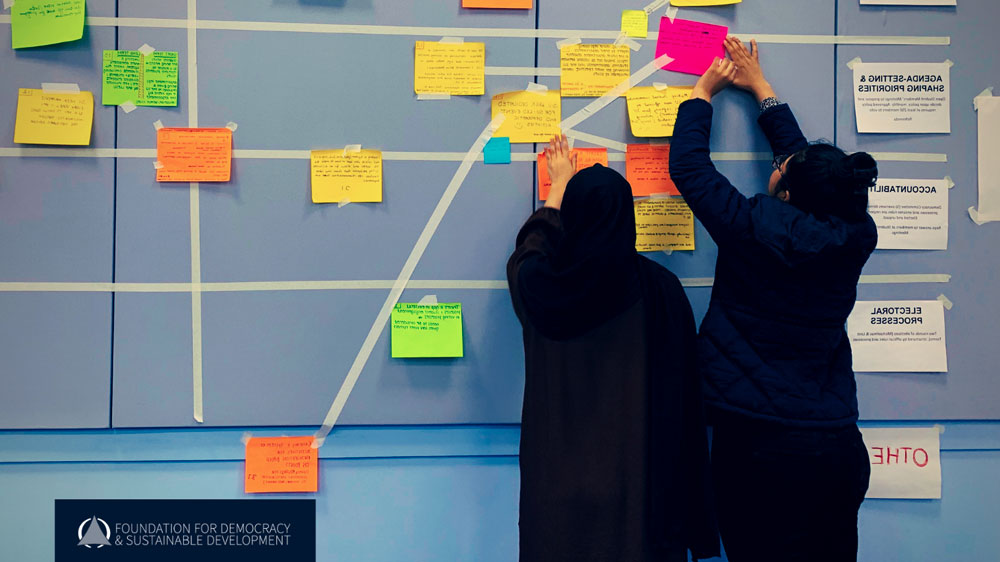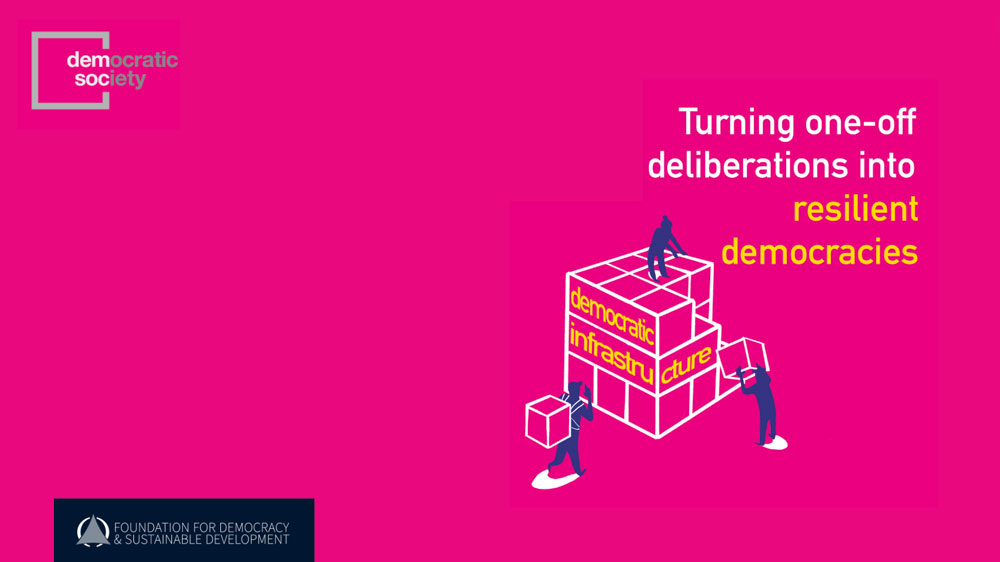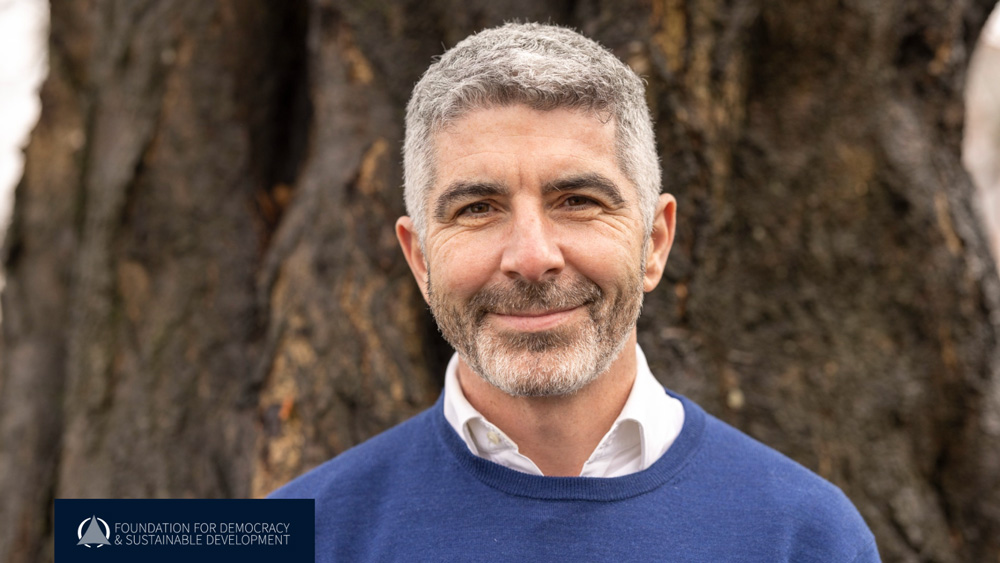
Image: courtesy of Mila Tovar / unsplash
FDSD update: Quiet but busy…
FDSD has been quiet during COVID, but not inactive. We have been rethinking how we can best contribute to the profound challenges facing democracies today.
We are planning an event in 2023 to bring together the diverse and fragmented discussions on the future of democracy, and ensure they incorporate sustainability and just transition. If you wish to be involved, please contact us at info@fdsd.org.
FDSD’s leadership is changing from Graham Smith to Peter Davies. Graham has chaired FDSD with profound inspiration and commitment. This newsletter builds on his ground-breaking work, most recently as Chair of the Knowledge Network on Climate Assemblies (KNOCA). Peter is well-known to many, particularly as a key architect of the Wellbeing of Future Generations (Wales) Act and as the Welsh Sustainable Futures Commissioner, the precursor to the now Future Generations Commissioner.
Embedding deliberative practices more effectively in our political system
‘Deliberative participation’ is democratic decision-making which involves the public in assessing the weight of evidence and coming to agreed ways forward. The benefits of deliberation are discussed elsewhere. This newsletter asks: How can deliberative practices be incorporated into political and societal decision-making in ways that have meaningful impact?
The three contributions below point the way forward. More innovation of this kind will be needed to create inclusive and successful sustainability transitions.
We know that our representative democracy is under strain from a range of factors: including a lack of confidence in elected officials; and an apparent inability to tackle major short and long-term challenges such as excessive inequality or climate change. Such challenges, in part, arise from the pressures of short election cycles and excessively confrontational politics. FDSD has long proposed the benefits of incorporating deliberative participation more extensively into our democratic systems, to counter some of these difficulties, better engage the imagination and creativity of citizens, bring consideration of future generations into the picture, and provide more legitimate and effective decision-making. This is probably the only way we will be able to create a fair, just and commonly accepted environmental transition that is sensitive to the needs of different places and communities, and parts of our economy and society.
Examples of deliberative engagement have multiplied in recent years. The spread of participatory budgeting and digital technologies has been complemented by what the OECD has termed a “deliberative wave” of citizens’ assemblies and similar activities. But rarely do these new forms of deliberative engagement have much impact on policy or broader social change. The central question that animates the invited contributions to this newsletter is how we can move from ‘one-off’ examples of deliberative engagement to more widespread and impactful activity. We believe that, if we don’t get this right, the promise of more robust, legitimate and trustworthy governance, through enhanced public participation, threatens to deliver the opposite: a further loss of confidence in our political institutions and growing sense of frustration at opportunities lost.
Beyond the three contributions in this Winter 2022 FDSD Newsletter, other ideas are now being raised which perhaps seem less extreme than they once were. Examples include ideas for national or local chambers, in whole or in part, being randomly appointed and focused on deliberation of societal challenges.
Tensions between this deliberative agenda and entrenched principles of parliamentary sovereignty and bureaucratic independence remain. However, there are examples, such as the East Belgium Permanent Dialogue, the mixed parliamentary committees in the parliament of the Brussels Capital-Region and the forthcoming permanent climate assembly, also in Brussels, which have managed to combine the two. They illustrate ways in which it is possible to creatively build on the strengths of both.






